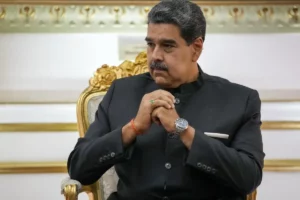On April 16, following the arrest of former Ecuadorian Vice President Jorge Glas, Venezuelan President Nicolás Maduro ordered the closure of his country’s embassy and two consulates in Ecuador.
The closures, impacting the embassy in Quito and consulates in Quito and Guayaquil, underscore a sharp protest against what Maduro views as a breach of international law.
His declaration was broadcast on state television, emphasizing the severity of the situation.

Information Minister Freddy Ñáñez reiterated these sentiments online, marking a significant diplomatic stance.
Further complicating matters, Maduro criticized comments by Ecuadorian President Daniel Noboa, who expressed approval of the embassy raid.
Maduro interpreted these comments as a direct threat to all nations with a diplomatic presence in Ecuador, intensifying regional tensions.
The incident also prompted Mexico, which had offered political asylum to Glas, to sever diplomatic ties with Ecuador. This action reflects broader regional discomfort with Ecuador’s handling of the situation.
Brazilian President Luiz Inácio Lula da Silva also entered the fray, demanding a formal apology from Ecuador for disrupting diplomatic norms.

